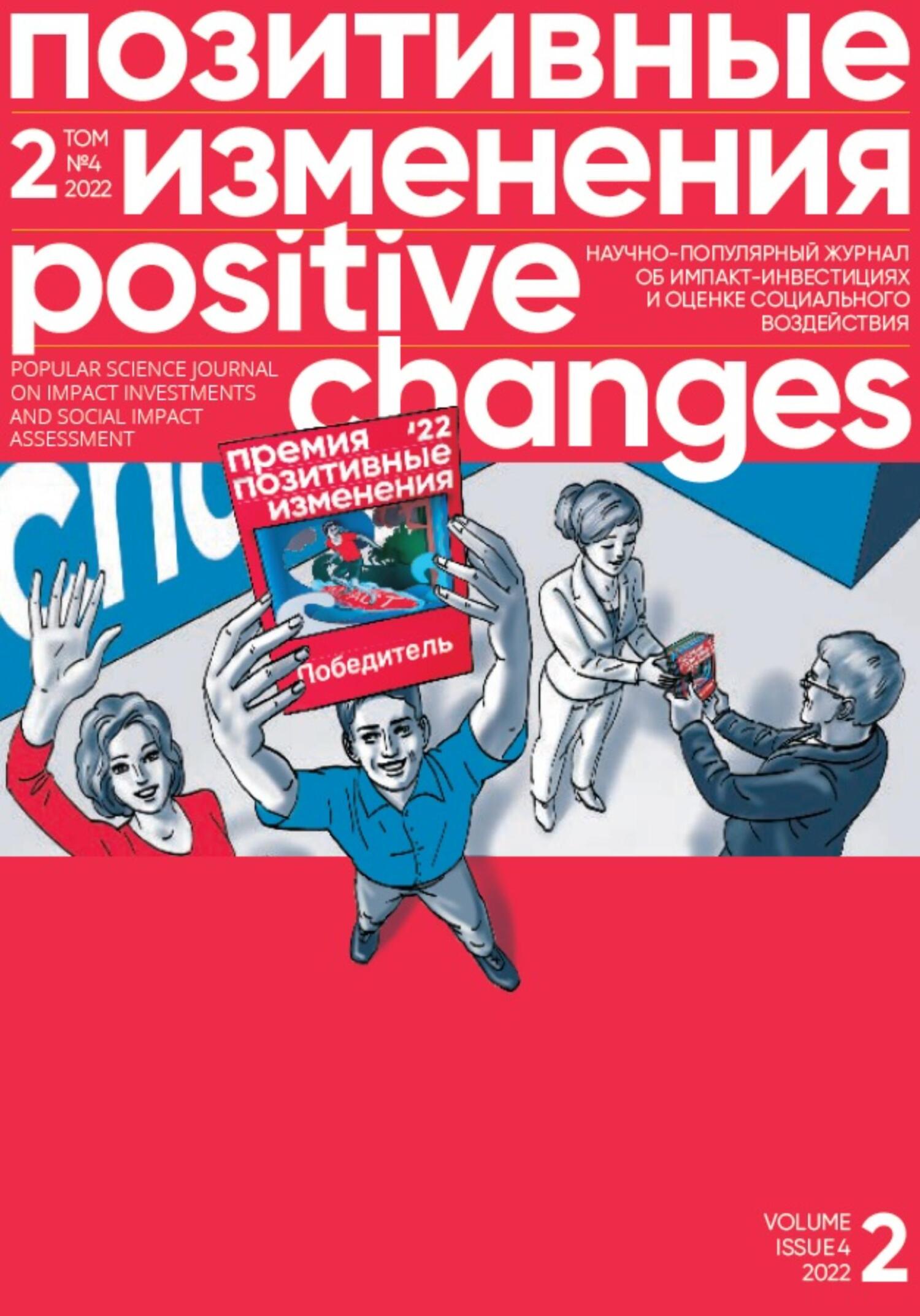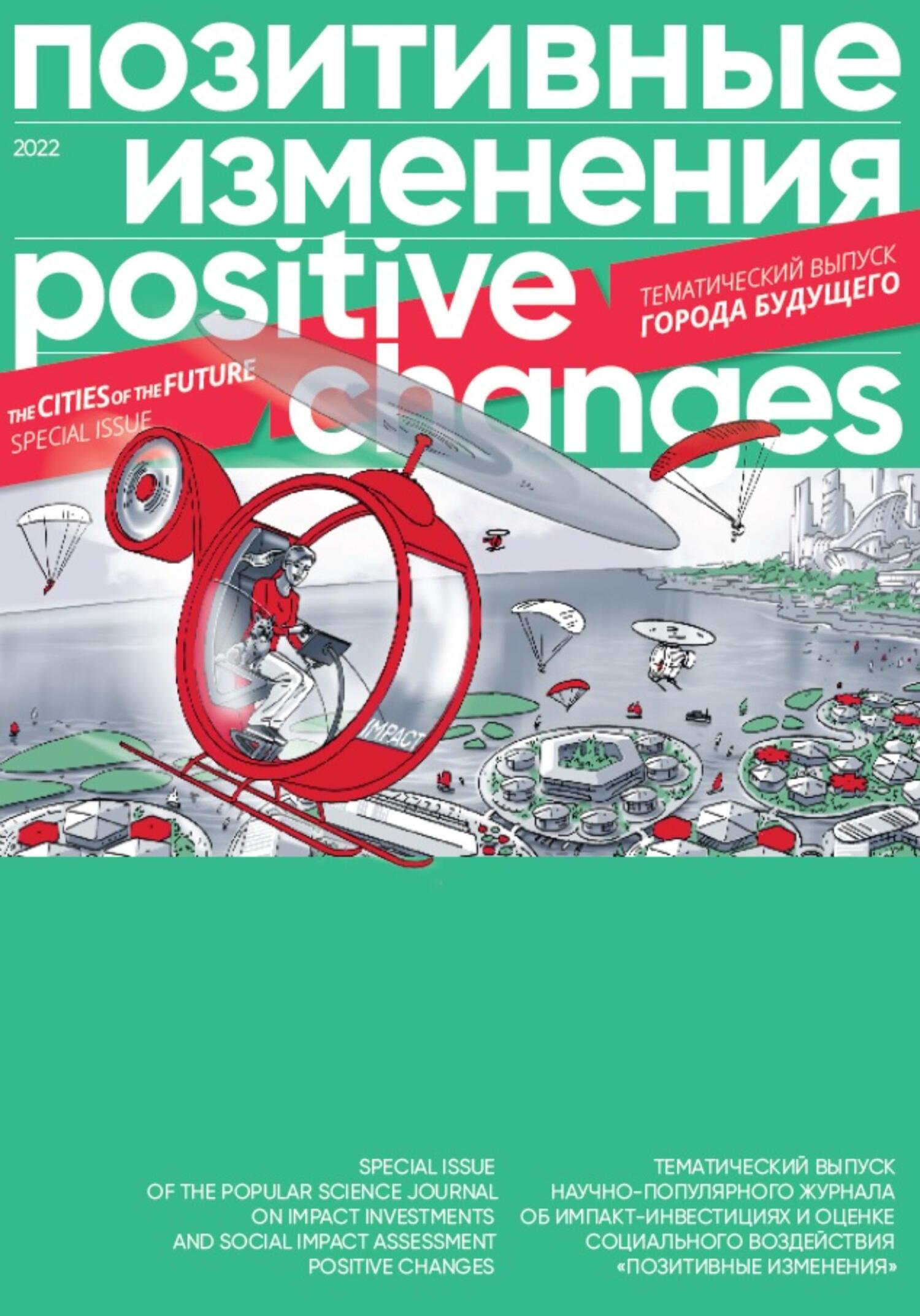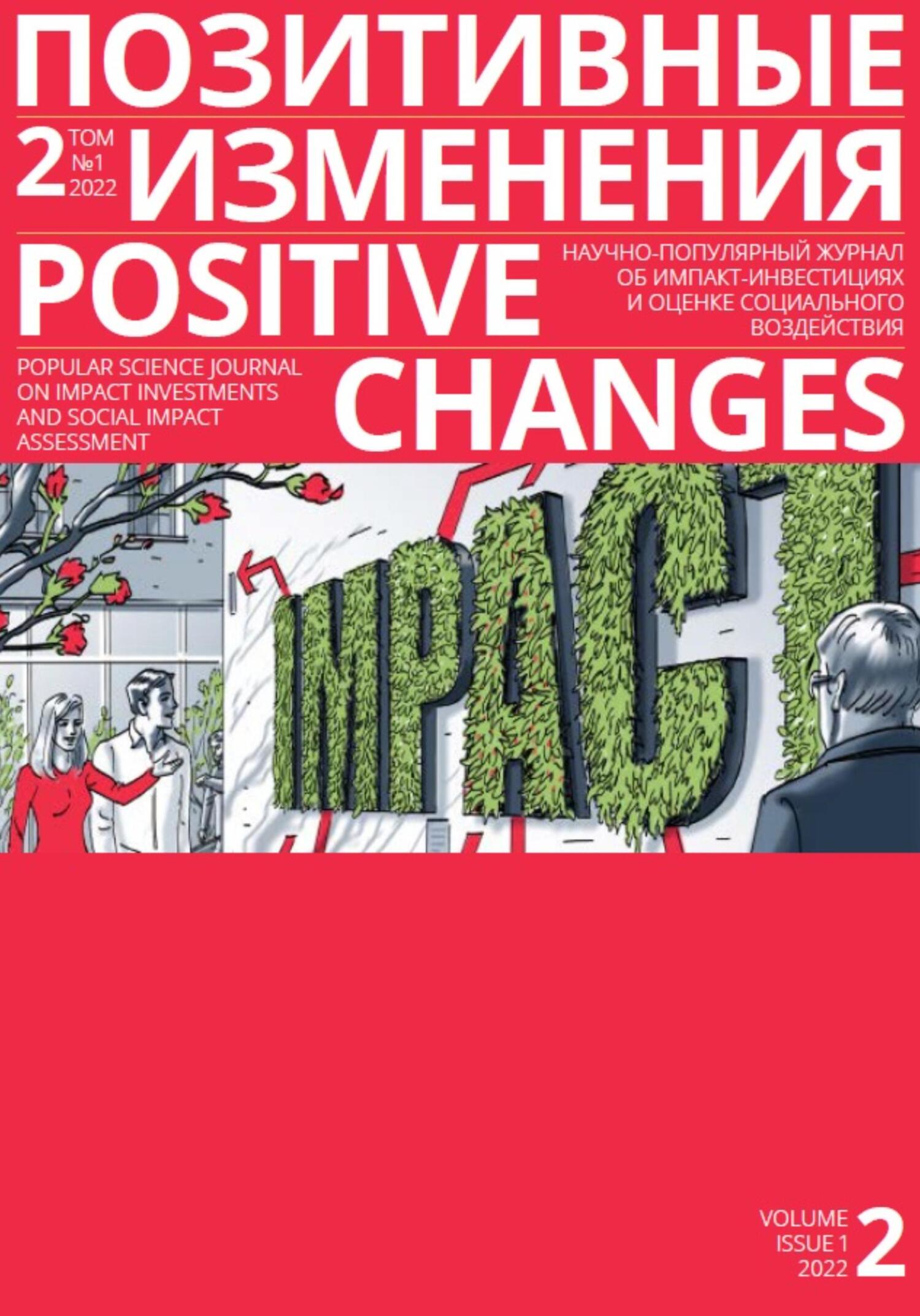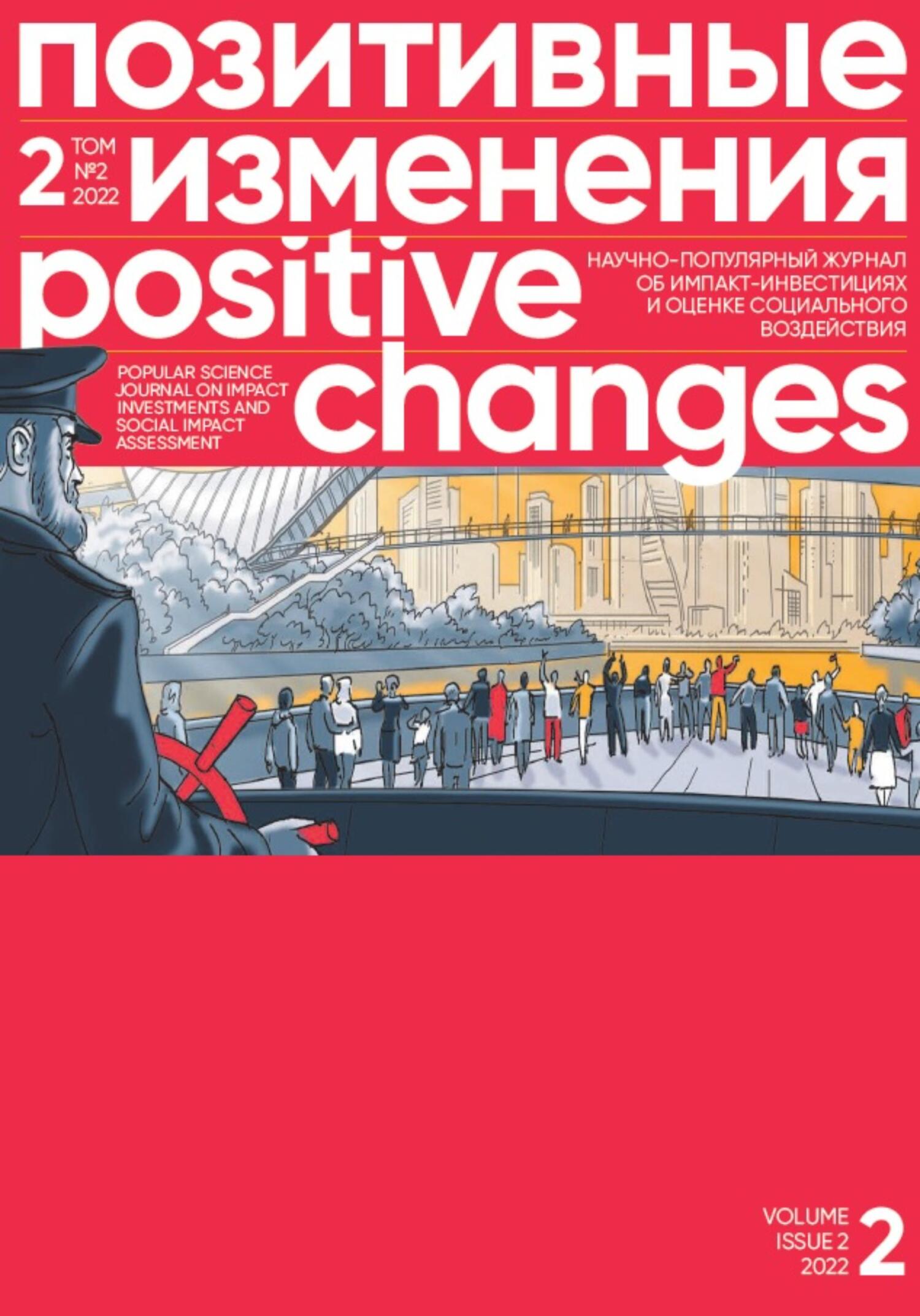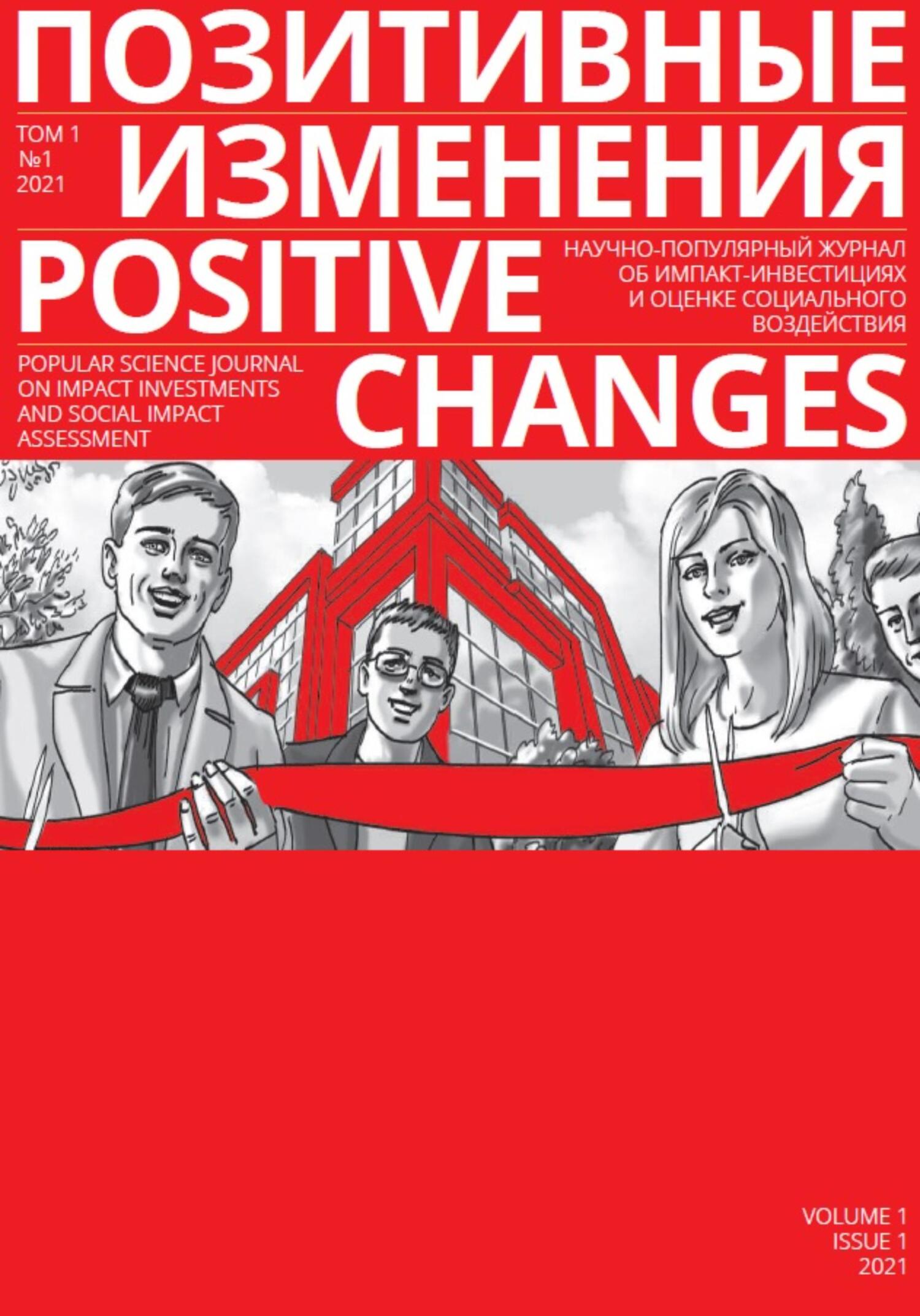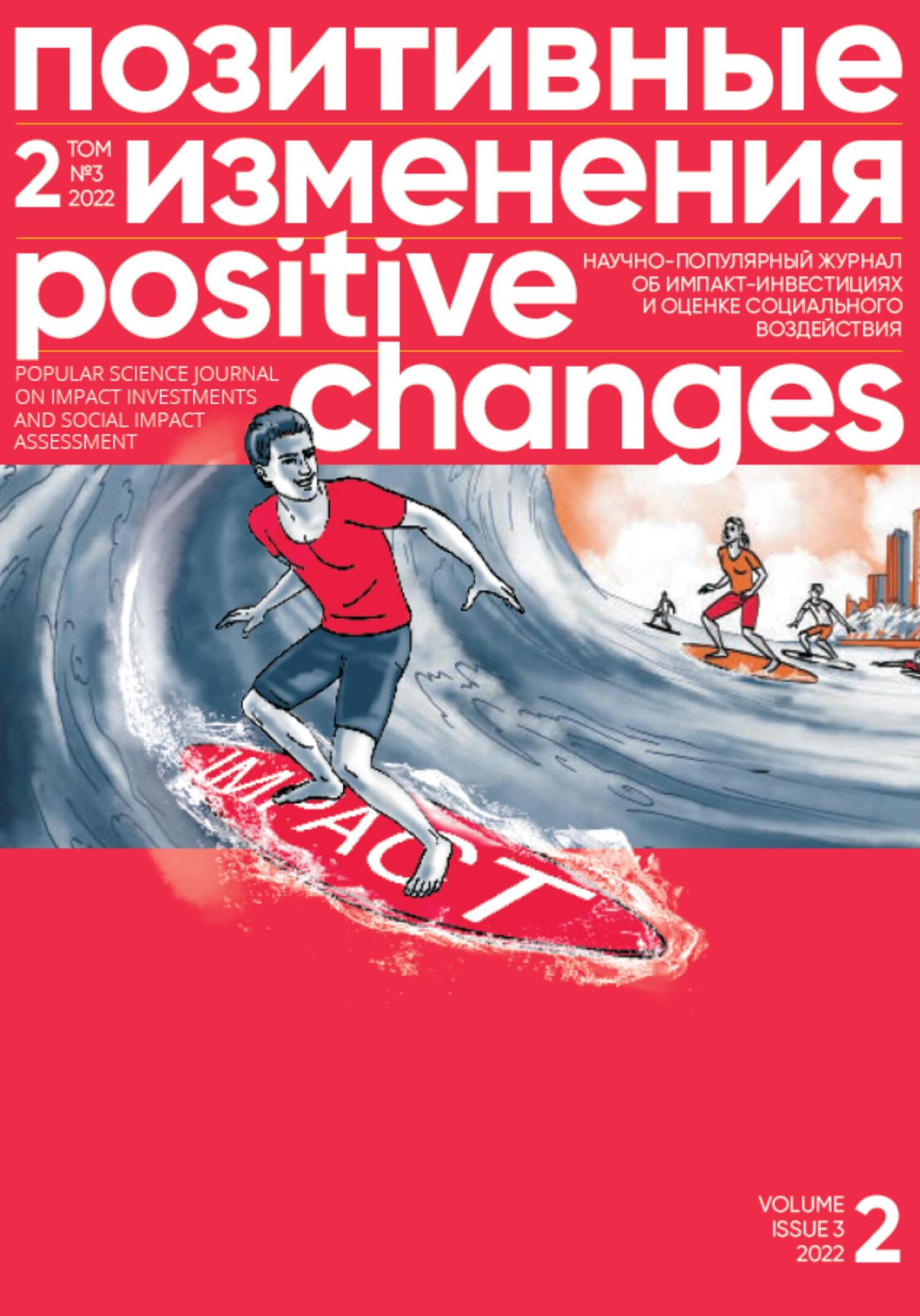“Factory of Spaces.” The organizer of the conference, the Blagosfera center, brings together community space owners and managers every year with a mandatory separate event dedicated to neighborhood center development. In the fall of 2022, such an event was the Neighborhood Center Leaders Session of development companies, organized in conjunction with the Positive Changes Factory.
Its key topics were those of the vision and the role of neighborhood centers, as well as the search for a neighborhood center development model that is most adequate to the contemporary situation.
According to Irina Gontarenko, Project Manager of Neighborhood Centers at Brusnika Company, each center is an element of the neighborhood's social infrastructure for self-actualization of the residents, establishing a community within itself and stimulating its development [71]. The roles of the community and the developer are clearly spelled out and distributed. Brusnika participates in creating the community, setting the development vector, moderating processes, assisting in managing controversial situations and providing financial support at the initial stage (the first year). The community contributes by community development activities, providing content for events, creating and implementing projects.
The community center concept presented by GloraX [72] Head of Special Projects Olga Nerusheva emphasizes that a developed local community improves the environment and speeds up the decision-making process regarding the development of the space. Community centers also stimulate the development of micro-businesses: “cafes, schools, lectures and workshops grant opportunities to discover and realize entrepreneurial talent. The more services are provided in a neighborhood and the more diverse they are, the more willing people are to buy housing there,” she says. According to her, it's all a value-added element. “The company's experts have already recorded cases where people from nearby houses first came to the co-working room, and then moved into the apartments of the developer's projects,” Olga Nerusheva explains.
The general vector for unlocking potential is continued by the head of “We, the Neighbors” network of neighborhood centers [73] of the Seven Suns Development group of companies, Daria Mashevskaya. She singles out creating exclusive conditions for human and community development, providing local accessibility (being close by), aggregating all points of positive change in the neighborhood, and purposefully influencing the development of the area as the key goals of investing in neighborhood centers.
Disclosing these goals, Daria Mashevskaya describes the objectives of introducing and uniting people sharing common interests, providing support and resources for the development and solution of problems formed within the community, including those that coincide with the values of the developer (customer). Thus, the expert notes, “we are moving from absent or sporadic communities to the creation of structured communities where residents are finding support from like-minded people, developing, working together to address urgent problems, and experiencing career growth and scaling.”
THE FOUR-STEP THEORY
The concepts described above, with their emphasis on bringing residents together and strengthening local communities, unlocking entrepreneurial potential, and aggregating all initiatives in the space of the “neighborhood capital,” in the opinion of the author of the publication, fit logically into the Four-Step Theory of Neighborhood Center Sustainability Development, presented in the 2019 methodological handbook “Setting Up a Neighborhood Center [74].”
Step One: Bringing locals together to share knowledge (meetings, lectures, seminars, tea parties, workshops, festivals, movie screenings, or readings). Already at the first stage — when people share with each other their discoveries, knowledge, and “life hacks,” e.g., survival tips for economically challenging conditions — we can see a process of transition from private knowledge to collective use, from private initiative to joint action, from private possession to shared use, etc., all with the “co-” prefix.
Interestingly, Elena Shomina, a key researcher of “neighborhood relations” also draws attention to this important characteristic in her work “Neighborhood Centers as an Element of Neighborhood Community Infrastructure”: “The community emerges as a result of the interaction between neighbor resident, their communication. The prefix “co-”, meaning common, shared, connects this concept with the terms “communication” and “coownership”. The latter has become especially important in modern Russian apartment buildings since the privatization of housing and the emergence of the concepts of “common property” and “common household needs [75].”
Neighborhood (community) centers are commonly used by their community as a place for:
• joint celebration of events significant to the local residents;
• joint meetings of the residents on various issues;
• joint use of the premises for local clubs and various volunteer associations;
• joint collection, storage, and sharing of local history (a neighborhood museum function), etc. The manifestation of the prefix “co-” means the transition to the second level.
Step Two: pooling and sharing resources. This step is where usually collaborative crowdfunding and sharing projects are usually launched, ensuring the transition to the next level.
Step Three: launching a wide range of micro-entrepreneurial projects, both social and commercial (based on monetization of hobbies, new crafts, independent educational programs, training courses by residents for residents, etc.) on the basis of the neighborhood center. Such projects by residents and communities help improve the sustainability to monetize the center and move to the fourth level.
Step Four: The neighborhood center is a self-sustaining space, based on social cooperation, showcases of local goods and services for residents, schools and additional vocational education programs, an events calendar, and partnerships with outside companies.
The most exemplary synchronization of the four steps and the practice of a real neighborhood center was the model of the neighborhood center “We Are Neighbors,” tested and implemented in 2022 by Seven Suns Development. The model features a description of the potential development funnel for each participant in the life of the center — from a single neighbor, through uniting and launching initiatives, to the leader of the local circle, club, community, and so on. Interestingly, this funnel is also the basis for the season ticket system, which has become one of the sources of funding for the center. There is also great interest and anticipation caused by the intention of the leadership of the “We Are Neighbors” network to report in 2023 on the
